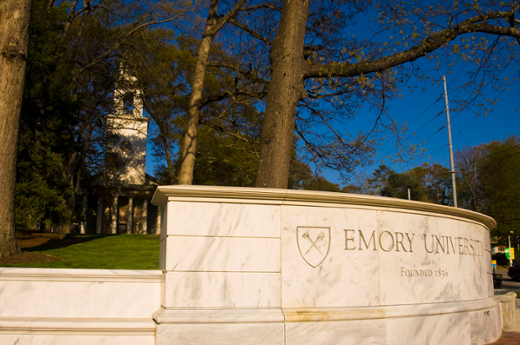The National Academies’ Action Collaborative on Preventing Sexual Harassment in Higher Education has launched a new partner network to engage higher education–focused organizations to share their work on preventing and addressing sexual harassment in the industry.
Emory University is one of 13 organizations that has joined the partner network as an inaugural group.
“We recognize that historically male-dominated and hierarchical environments such as academia, including medicine, can be fertile ground for sexual harassing behaviors,” says Carolyn Meltzer, MD, who is the chief diversity and inclusion officer at Emory’s School of Medicine and the university’s representative in the partner network. “My colleagues and I at Emory look forward to continuing our work on mitigating systemic gender bias and inequity as a member institution of the partner network, and filtering those efforts to a local level in Atlanta.”
The action collaborative was created in 2019 to facilitate the work of higher education institutions in developing and implementing efforts that move beyond basic legal compliance to evidence-based policies and practices for preventing sexual harassment. Sixty colleges, universities, and research institutions are currently members of the collaborative.
Organizations that have joined the collaborative’s new partner network have pledged to contribute in the following ways:
- Participate actively in the work of the action collaborative
- Share information about the organization’s efforts and innovations around preventing and addressing sexual harassment
- Use, adapt, implement, and share the resources and practices that are identified or published by the action collaborative
The inaugural partner network organizations are:
- Association of American Universities (AAU)
- Center for Institutional Courage
- Emory University
- Fieldwork Initiative
- Icahn School of Medicine at Mount Sinai
- Lawrence Berkeley National Laboratory
- Oregon State University
- The 1752 Group
- University of Arizona
- University of California, Davis
- University of Texas MD Anderson Cancer Center
- University of Texas Southwestern Medical Center
- Whatcom Community College
Participation in the partner network is open to higher education institutions; higher education-affiliated or other academic research institutes or laboratories; higher education associations; grassroots and advocacy organizations interested in addressing sexual harassment in higher education; federal agencies; national laboratories; philanthropies and for-profit companies with an interest in higher education; and other groups that primarily focus on preventing or responding to sexual harassment in higher education.
More information about the collaborative and how to become a member can be found on its website.

